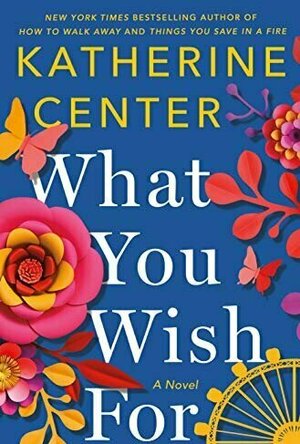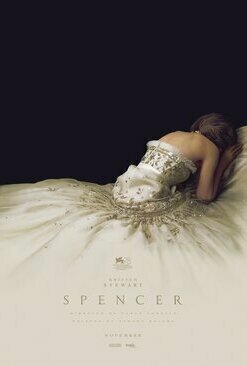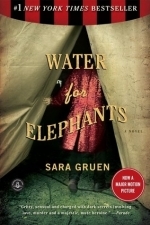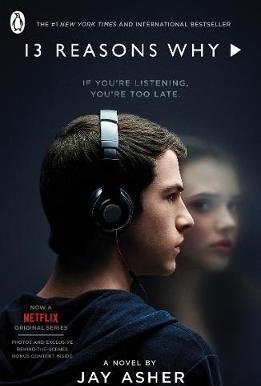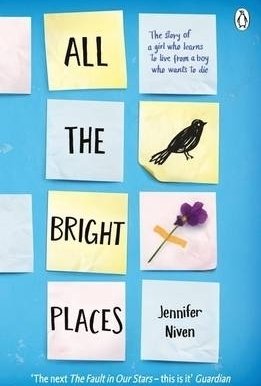Search
Search results
Kristy H (1252 KP) rated What You Wish For in Books
Aug 6, 2020
I feel bad, but I think I'm somehow immune to Katherine Center's charms, which seem to make everyone swoon over her books. With the exception of How To Walk Away, which I really enjoyed, I like her books, but never really love them. And that's definitely what happened here. In fact, I often found WISH to be utterly frustrating.
Maybe it's because I'm the child of educators, but I just kept shaking my head at the idea of a principal who could come in and unilaterally make decisions without any resistance. It made it impossible for me to focus on the rest of the story. Apparently Duncan is hired by the school founders' son-in-law--essentially a school board of one. What private school has one person on their board? What sort of private school has parents who just quietly allow someone to paint the halls gray and put bars on the windows??! None of this made any sense to me. All the resistance came down to the teachers?? I've seen parents riot over far less.
I couldn't handle it--could you tell? I also couldn't handle Sam for most of the book. I just get frustrated with Center's heroines. Sam was so whiny about nearly everything. She was more than happy to judge everyone else, yet completely resistant to owning her own life, making any changes, and opening up. Ugh. I wanted to shake her sometimes.
The book was very slow to start. Much rehashing of Sam's own problems, Duncan's arrival and the fact that--can you believe it--he is different than he was before. Hey, did you know Duncan used to be cool and funny, but now he's not?! I didn't! Oh wait, let me tell you again 15 times. Also, let's go into the fact that Sam has some issues and can never ever love again. Did I mention ever?
Also, later, without giving too much away, we completely gloss over how serious PTSD is and whitewash over the severity of things like depression, because focusing on happy things will just take away those issues completely, right? Also most plot points are telegraphed a mile away.
Sigh, I'm probably being too harsh here. The book gets a bit better as things go on. And there's a really cute kid whom I enjoyed. But still. Repetitive, predictable, and not the best at presenting mental health issues. 2.5 stars, rounding to 3 here.
Maybe it's because I'm the child of educators, but I just kept shaking my head at the idea of a principal who could come in and unilaterally make decisions without any resistance. It made it impossible for me to focus on the rest of the story. Apparently Duncan is hired by the school founders' son-in-law--essentially a school board of one. What private school has one person on their board? What sort of private school has parents who just quietly allow someone to paint the halls gray and put bars on the windows??! None of this made any sense to me. All the resistance came down to the teachers?? I've seen parents riot over far less.
I couldn't handle it--could you tell? I also couldn't handle Sam for most of the book. I just get frustrated with Center's heroines. Sam was so whiny about nearly everything. She was more than happy to judge everyone else, yet completely resistant to owning her own life, making any changes, and opening up. Ugh. I wanted to shake her sometimes.
The book was very slow to start. Much rehashing of Sam's own problems, Duncan's arrival and the fact that--can you believe it--he is different than he was before. Hey, did you know Duncan used to be cool and funny, but now he's not?! I didn't! Oh wait, let me tell you again 15 times. Also, let's go into the fact that Sam has some issues and can never ever love again. Did I mention ever?
Also, later, without giving too much away, we completely gloss over how serious PTSD is and whitewash over the severity of things like depression, because focusing on happy things will just take away those issues completely, right? Also most plot points are telegraphed a mile away.
Sigh, I'm probably being too harsh here. The book gets a bit better as things go on. And there's a really cute kid whom I enjoyed. But still. Repetitive, predictable, and not the best at presenting mental health issues. 2.5 stars, rounding to 3 here.
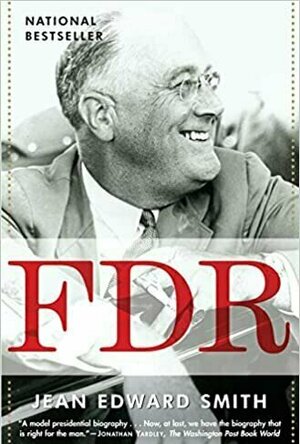
FDR
Book
One of today's premier biographers has written a modern, comprehensive, indeed ultimate book on the...
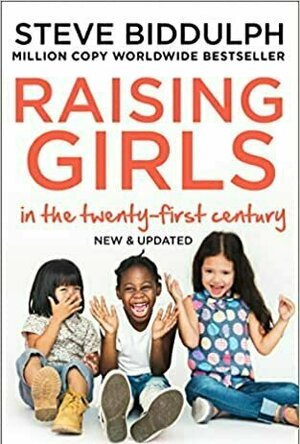
Raising Girls
Book
Steve Biddulph’s Raising Boys was a global phenomenon. The first book in a generation to look at...

Full Circle: From Hollywood to Real Life and Back Again
Book
She grew up in front of the world on the beloved sitcom Full House, but then actress Andrea Barber...
memoir autobiography Full House Fuller House
BankofMarquis (1832 KP) rated Spencer (2021) in Movies
Feb 10, 2022
Stewart's Performance Elevates a Mediocre Film
Pablo Loraine’s SPENCER is not a subtle film, it shows the confinement and suffocation of Lady Diana Spencer under the watchful eye of the British monarchy and is not shy about who the bad guys are.
This sort of one-sided-ness of storytelling does not a compelling film make, but what does make this film compelling is the outstanding performance that is at the center of this film, Kristen Stewart as Lady Diana Spencer.
Telling the tale of the last Christmas that Diana spent as a member of the Royal family, SPENCER shows a a person in mental distress, living an ordered life that leaves little room for spontaneity or originality - things that Diana had in spades.
The only thing that makes this film work is the Oscar Nominated performance of Kristen Stewart as Diana. The way this movie was filmed, it would have been very easy for Stewart to portray Diana as a one-note victim, by she embodies this character with joy, sorrow, love, anger, depression and acceptance - sometimes at the same time. It is a tour-de-force performance that is well deserved of the Oscar nom.
What doesn’t work is the perspective of the film by Director Pablo Larrain (who also Directed Natalie Portman to an Oscar nom in JACKIE). He, clearly, had a vision and the look of the film is strong. What isn’t strong is the characters apart from Diana. The Royal family (especially Jack Farthings’ Prince Charles and Stella Gonet’s Queen Elizabeth) are mustache-twirling villians, Diana’s sons William and Harry look like they came out of the “Weasley Family” casting agency, while terrific character actors like Sally Hawkins, Timothy Spall and Sean Harris have almost (but not quite) interesting characters that don’t quite gel with what is going on.
But that is besides the point, for this is a story about Diana and Stewart is front and center in almost every scene - and is fascinating to watch - especially as she embodies Lady Diana in the marvelous costumes by Jacqueline Durran.
Come for the look at the Royals, stay for the performance by Stewart - one that I would not be suprised is honored come Oscar night.
Letter Grade: B
7 stars (out of 10) and you can take that to the Bank(ofMarquis)
This sort of one-sided-ness of storytelling does not a compelling film make, but what does make this film compelling is the outstanding performance that is at the center of this film, Kristen Stewart as Lady Diana Spencer.
Telling the tale of the last Christmas that Diana spent as a member of the Royal family, SPENCER shows a a person in mental distress, living an ordered life that leaves little room for spontaneity or originality - things that Diana had in spades.
The only thing that makes this film work is the Oscar Nominated performance of Kristen Stewart as Diana. The way this movie was filmed, it would have been very easy for Stewart to portray Diana as a one-note victim, by she embodies this character with joy, sorrow, love, anger, depression and acceptance - sometimes at the same time. It is a tour-de-force performance that is well deserved of the Oscar nom.
What doesn’t work is the perspective of the film by Director Pablo Larrain (who also Directed Natalie Portman to an Oscar nom in JACKIE). He, clearly, had a vision and the look of the film is strong. What isn’t strong is the characters apart from Diana. The Royal family (especially Jack Farthings’ Prince Charles and Stella Gonet’s Queen Elizabeth) are mustache-twirling villians, Diana’s sons William and Harry look like they came out of the “Weasley Family” casting agency, while terrific character actors like Sally Hawkins, Timothy Spall and Sean Harris have almost (but not quite) interesting characters that don’t quite gel with what is going on.
But that is besides the point, for this is a story about Diana and Stewart is front and center in almost every scene - and is fascinating to watch - especially as she embodies Lady Diana in the marvelous costumes by Jacqueline Durran.
Come for the look at the Royals, stay for the performance by Stewart - one that I would not be suprised is honored come Oscar night.
Letter Grade: B
7 stars (out of 10) and you can take that to the Bank(ofMarquis)
Rachel King (13 KP) rated Water for Elephants in Books
Feb 11, 2019
This is one of those books that I read because I loved the movie first. So, I was quite surprised when I read how the book begins - with the murder of one of the main characters. When I further realized that August does not own the Benzini Brothers, I began to see the movie as its own story separate from the book.
Jacob is by far the most interesting character of the book, especially since he tells the story as an old man in a nursing home - and has the wisdom and experience to go with his age. His emotions are infectious and I longed to sit down with him and listen to all of his stories in person way before I finished the book.
August is the kind of villain that is confusing in his evil deeds - he has schizophrenia - which makes it somewhat unfair to dislike him so much. His irrational behavior has been exploited for the almighty dollar by Uncle Al - but the real villain tends to fade into the background.
Marlena is beautiful to the point of angelic, very little of what she does can be considered wrong in any way, as she is a victim struggling for freedom for most of the book. She approaches August's mood swings with the same caution due a wild animal, and remains faithful to him despite her personal feelings, and does not leave until he first betrays her. Considering how women today will leave their husbands for any reason, I admire her strong morals.
The background is set during the Great Depression, which made for many intense situations as the circus struggled to profit, as well as the survival of the cast of characters. Though I studied this period in American history, the direct experience gave me a clearer idea of the desperation of people alive during this time - how easily morals could be put on hold for the sake of another mouthful of food or another coin in the pocket. So many men of the circus would work without pay for the promise of another meal and unending hope that life could still improve.
Rosie, the elephant, is also one of the most fascinating characters in the book. She proved to be only one example of how animals were exploited to the point of cruelty for profit. I could not help wondering where the animal activists were.
Needless to say, this book sparked many conversations and inspired many moments of personal contemplation for me. I loved this book, and I highly recommend it.
Jacob is by far the most interesting character of the book, especially since he tells the story as an old man in a nursing home - and has the wisdom and experience to go with his age. His emotions are infectious and I longed to sit down with him and listen to all of his stories in person way before I finished the book.
August is the kind of villain that is confusing in his evil deeds - he has schizophrenia - which makes it somewhat unfair to dislike him so much. His irrational behavior has been exploited for the almighty dollar by Uncle Al - but the real villain tends to fade into the background.
Marlena is beautiful to the point of angelic, very little of what she does can be considered wrong in any way, as she is a victim struggling for freedom for most of the book. She approaches August's mood swings with the same caution due a wild animal, and remains faithful to him despite her personal feelings, and does not leave until he first betrays her. Considering how women today will leave their husbands for any reason, I admire her strong morals.
The background is set during the Great Depression, which made for many intense situations as the circus struggled to profit, as well as the survival of the cast of characters. Though I studied this period in American history, the direct experience gave me a clearer idea of the desperation of people alive during this time - how easily morals could be put on hold for the sake of another mouthful of food or another coin in the pocket. So many men of the circus would work without pay for the promise of another meal and unending hope that life could still improve.
Rosie, the elephant, is also one of the most fascinating characters in the book. She proved to be only one example of how animals were exploited to the point of cruelty for profit. I could not help wondering where the animal activists were.
Needless to say, this book sparked many conversations and inspired many moments of personal contemplation for me. I loved this book, and I highly recommend it.
Kyera (8 KP) rated Thirteen Reasons Why: (TV Tie-in) in Books
Jan 31, 2018
I would like to start this with a trigger warning because this book covers some sensitive topics. There is the discussion throughout of rape, depression, suicide, anxiety, bullying and other topics that may be harmful to readers. Although I feel it is beautifully approached, I would definitely approach this book with caution if you feel that it may trigger you. I would never want anyone to go into a book uninformed and be harmed by it.
The story was told through dual perspectives which I think really enhanced the impact that this book had. Clay receives the tapes that Hannah has recorded, detailing the people and events that have led to her decision. What she believes to be the tale and connections that made her fall further and further. We hear each story and the heart-wrenching impact another person’s actions have on Hannah’s psyche, whether they mean the harm or not. Everything affects everything. One seemingly innocent, yet mischievous action, can snowball into a very harmful situation.
As the reader, we experience the story through Clay’s eyes and follow the emotional journey with him. We despair for Hannah as the events take place, grow to care for her and see how the smallest action might create a larger impact. Clay’s emotions mirror our own, frustration, horror, despair, outrage, and acceptance. We take the journey and grow along with him, learn to be better people and hopefully make a change.
I feel that beyond the trigger warning, it is best to go into the story without preconceived notions and allow it to have its full impact. So many people have connected to this book over the years and for good reason. It is a fantastically powerful story and I would recommend it.
As an additional note, the Netflix series based on this book is a very faithful recreation of the story. Some minor details may be changed, like a character’s name or the order of one of the stories – but overall it follows the book fairly closely. Some of the more major changes were done for dramatic effects, like extending the amount of time that Clay listens to the tapes, allowing them to add more story to the present day tale. I reiterate my trigger warning and believe that it is even stronger for the show, but would still recommend both mediums of the tale. I don’t believe there is a particular order that you need to or should read versus watch them in.
The story was told through dual perspectives which I think really enhanced the impact that this book had. Clay receives the tapes that Hannah has recorded, detailing the people and events that have led to her decision. What she believes to be the tale and connections that made her fall further and further. We hear each story and the heart-wrenching impact another person’s actions have on Hannah’s psyche, whether they mean the harm or not. Everything affects everything. One seemingly innocent, yet mischievous action, can snowball into a very harmful situation.
As the reader, we experience the story through Clay’s eyes and follow the emotional journey with him. We despair for Hannah as the events take place, grow to care for her and see how the smallest action might create a larger impact. Clay’s emotions mirror our own, frustration, horror, despair, outrage, and acceptance. We take the journey and grow along with him, learn to be better people and hopefully make a change.
I feel that beyond the trigger warning, it is best to go into the story without preconceived notions and allow it to have its full impact. So many people have connected to this book over the years and for good reason. It is a fantastically powerful story and I would recommend it.
As an additional note, the Netflix series based on this book is a very faithful recreation of the story. Some minor details may be changed, like a character’s name or the order of one of the stories – but overall it follows the book fairly closely. Some of the more major changes were done for dramatic effects, like extending the amount of time that Clay listens to the tapes, allowing them to add more story to the present day tale. I reiterate my trigger warning and believe that it is even stronger for the show, but would still recommend both mediums of the tale. I don’t believe there is a particular order that you need to or should read versus watch them in.
Kristy H (1252 KP) rated All the Bright Places in Books
Feb 8, 2018
Theodore is a quirky teen whose life has been troubled by sadness. His parents are divorced and Theo's recent past has been marked by dark patches, what he thinks of as a deep sleep, where he zones out from depression and sadness. He finds himself thinking often of suicide. One day, while on the ledge of their school's Bell Tower, Theo comes across Violet. Violet's life has changed drastically since the death of her older sister in a car accident. She's not so sure about life lately, either. So Theo lets everyone at school think Violet "saved" him on that Tower, when it's really him who talks her down. The two form an unlikely friendship and embark on a school project, documenting the "natural wonders" of their home state of Indiana. But do Violet and Finch realize the sadness each is dealing with?
Oh how I wanted to like this book. I'd heard so many good things about it, and it was compared to [b:Eleanor & Park|15745753|Eleanor & Park|Rainbow Rowell|https://d.gr-assets.com/books/1341952742s/15745753.jpg|17225055], which I adore. But whereas Eleanor and Park each felt so real, these characters didn't always come across as true, versus caricatures. I did find myself caring, often deeply, for Violet, and I liked Finch, but he changed his personality types so often -- it was hard to relate to his character. I'm glad the book covered the topic of mental illness, but its portrayal was odd sometimes. I almost worry that it glorified mental illness and suicidal thoughts somehow (hard to explain without too many spoilers).
Also, Theo and Violet seem to fall for each other awfully quickly. Why does this happen so often in YA novels? Am I just a jaded adult now (entirely possible)? Also a huge issue - where are the freaking adults in this book, and why don't they help Violet and Finch? Kids and teens shouldn't feel that mental illness is something they need to deal with alone. I also think truly portraying Finch's "deep sleep" and how that affected him could have done wonders for showing the effects and ills of mental illness on teens.
Overall, this book certainly had its lovely moments. Violet and Finch are touching characters in many ways. As I said, I really liked Violet - her character really grows on you. Niven's writing is beautiful at times, and the teens' school project is an interesting touch. This was also hard for me to read, having experienced mental illness and suicide in my family. I think it was worth reading, but it didn't completely live up to my expectations.
Oh how I wanted to like this book. I'd heard so many good things about it, and it was compared to [b:Eleanor & Park|15745753|Eleanor & Park|Rainbow Rowell|https://d.gr-assets.com/books/1341952742s/15745753.jpg|17225055], which I adore. But whereas Eleanor and Park each felt so real, these characters didn't always come across as true, versus caricatures. I did find myself caring, often deeply, for Violet, and I liked Finch, but he changed his personality types so often -- it was hard to relate to his character. I'm glad the book covered the topic of mental illness, but its portrayal was odd sometimes. I almost worry that it glorified mental illness and suicidal thoughts somehow (hard to explain without too many spoilers).
Also, Theo and Violet seem to fall for each other awfully quickly. Why does this happen so often in YA novels? Am I just a jaded adult now (entirely possible)? Also a huge issue - where are the freaking adults in this book, and why don't they help Violet and Finch? Kids and teens shouldn't feel that mental illness is something they need to deal with alone. I also think truly portraying Finch's "deep sleep" and how that affected him could have done wonders for showing the effects and ills of mental illness on teens.
Overall, this book certainly had its lovely moments. Violet and Finch are touching characters in many ways. As I said, I really liked Violet - her character really grows on you. Niven's writing is beautiful at times, and the teens' school project is an interesting touch. This was also hard for me to read, having experienced mental illness and suicide in my family. I think it was worth reading, but it didn't completely live up to my expectations.
Kristy H (1252 KP) rated Inheriting Edith in Books
Feb 13, 2018
Maggie falls into a job housecleaning as a way to pay the bills. A college graduate, her work at a publishing firm barely lets her eke by. But she finds comfort in cleaning, even if it might not be the most glamorous trade in the world. Still, as a single mom, she's not exactly wealthy. So when a former employer and friend, Liza, passes away and leaves Maggie a home in a beach town, Sag Harbor, she's amazed. The only catch? Maggie must stay in the house with Liza's elderly mother, Edith, who is in the early stages of Alzheimer's. She's also a feisty, opinionated woman who is reeling from the loss of her only daughter. Neither Maggie nor Edith are too happy with this arrangement, but Maggie moves in with two-year-old Lucy in town. Slowly the two woman learn more about each other-- and their past.
This is an interesting little novel. The characters within are enjoyable and endearing. I took to Maggie immediately, as well as her sweet daughter. Even prickly Edith is one to root for. The supporting cast, particularly Edith's friend, Esther, are lovely. Still, somehow, the novel felt a little flat to me. As if it was trying too hard, or conversely, not enough. The book was good, but felt a little predictable, and the plot seemed to just barely scrape at the surface of the hard issues it dealt with: depression, Alzheimer's, adoption. It seemed like there could have been so much more depth of feeling and intensity shown in dealing with these hard subjects. I kept thinking back on one of my all-time favorite books, [b:Elizabeth Is Missing|18635113|Elizabeth Is Missing|Emma Healey|https://images.gr-assets.com/books/1388883559s/18635113.jpg|24946905], which is just this gorgeous, heartfelt story of a woman struggling with Alzheimer's and the daughter caring for her. In that novel, you could truly feel the pain of the characters. Here, they just sort of slide through, as if all these real problems can't truly touch them.
Still, it was a fun book, and as I said, the characters are endearing and often humorous at times. There is a lot of backstory that goes into Edith's early life, which is interesting, even if some of it becomes a tad farfetched. I'm glad I read it, but I wish it would have done more with its serious subjects and its lovely little cast. 3.5 stars.
I received a copy of this novel from the publisher and Librarything - thank you! It is available everywhere as of 10/18/2016.
This is an interesting little novel. The characters within are enjoyable and endearing. I took to Maggie immediately, as well as her sweet daughter. Even prickly Edith is one to root for. The supporting cast, particularly Edith's friend, Esther, are lovely. Still, somehow, the novel felt a little flat to me. As if it was trying too hard, or conversely, not enough. The book was good, but felt a little predictable, and the plot seemed to just barely scrape at the surface of the hard issues it dealt with: depression, Alzheimer's, adoption. It seemed like there could have been so much more depth of feeling and intensity shown in dealing with these hard subjects. I kept thinking back on one of my all-time favorite books, [b:Elizabeth Is Missing|18635113|Elizabeth Is Missing|Emma Healey|https://images.gr-assets.com/books/1388883559s/18635113.jpg|24946905], which is just this gorgeous, heartfelt story of a woman struggling with Alzheimer's and the daughter caring for her. In that novel, you could truly feel the pain of the characters. Here, they just sort of slide through, as if all these real problems can't truly touch them.
Still, it was a fun book, and as I said, the characters are endearing and often humorous at times. There is a lot of backstory that goes into Edith's early life, which is interesting, even if some of it becomes a tad farfetched. I'm glad I read it, but I wish it would have done more with its serious subjects and its lovely little cast. 3.5 stars.
I received a copy of this novel from the publisher and Librarything - thank you! It is available everywhere as of 10/18/2016.
Hazel (1853 KP) rated The Moon Field in Books
Dec 17, 2018
<b>My rating: 3.5</b>
<i>I received this book for free through Goodreads First Reads.</i>
<i>The Moon Field</i> is an historical romance novel set during the First World War. It focuses mainly on two people: George and Violet, although there is a wide range of characters.
Split into three parts the novel begins with George, an 18 year old postman planning on telling Miss Violet of his feelings for her, only to find out that she is already engaged. He runs off feeling jealous and ends up enlisting for the army. At first I thought the description of George made him seem more like a child than a young adult and this annoyed me a little, however this helped to emphasise the changes he undergoes as a result of the war.
Part two is mostly set in Flanders where George is involved in the fighting resulting in deaths of certain other characters for which George blames himself despite it not really being his fault. This section ends with George being hurt himself and part three begins with him being returned to a hospital in England where he begins to recover although is now deformed. Throughout this final part George suffers with depression and thinks that he is now a freak. He has to deal with lots of rejection but, thankfully, the novel ends with a more positive outlook for his future.
Knowing in advance that romance was to be involved, it appeared at first that there might be some romantic attachment developed between George and Violet. From the very beginning I personally did not want this to happen. It did not feel right particularly as they were of different social classes, which at that time was quite important. Fortunately this did not happen and I was fairly pleased with the ending.
I think that Allnatt’s writing is extremely good and reflects the time period well. I quite often find when reading historical novels that authors use words or phrases that are too modern to have actually been said at that time. There was none of that problem with <i>The Moon Field</i>. Allnatt had also researched extremely well to get across the experiences of the soldiers on the Western Front. She mentions in her acknowledgements that she read many soldiers accounts of their experiences in the Great War. All her research defiantly paid off!
All in all it is a great historical novel.
<i>I received this book for free through Goodreads First Reads.</i>
<i>The Moon Field</i> is an historical romance novel set during the First World War. It focuses mainly on two people: George and Violet, although there is a wide range of characters.
Split into three parts the novel begins with George, an 18 year old postman planning on telling Miss Violet of his feelings for her, only to find out that she is already engaged. He runs off feeling jealous and ends up enlisting for the army. At first I thought the description of George made him seem more like a child than a young adult and this annoyed me a little, however this helped to emphasise the changes he undergoes as a result of the war.
Part two is mostly set in Flanders where George is involved in the fighting resulting in deaths of certain other characters for which George blames himself despite it not really being his fault. This section ends with George being hurt himself and part three begins with him being returned to a hospital in England where he begins to recover although is now deformed. Throughout this final part George suffers with depression and thinks that he is now a freak. He has to deal with lots of rejection but, thankfully, the novel ends with a more positive outlook for his future.
Knowing in advance that romance was to be involved, it appeared at first that there might be some romantic attachment developed between George and Violet. From the very beginning I personally did not want this to happen. It did not feel right particularly as they were of different social classes, which at that time was quite important. Fortunately this did not happen and I was fairly pleased with the ending.
I think that Allnatt’s writing is extremely good and reflects the time period well. I quite often find when reading historical novels that authors use words or phrases that are too modern to have actually been said at that time. There was none of that problem with <i>The Moon Field</i>. Allnatt had also researched extremely well to get across the experiences of the soldiers on the Western Front. She mentions in her acknowledgements that she read many soldiers accounts of their experiences in the Great War. All her research defiantly paid off!
All in all it is a great historical novel.
